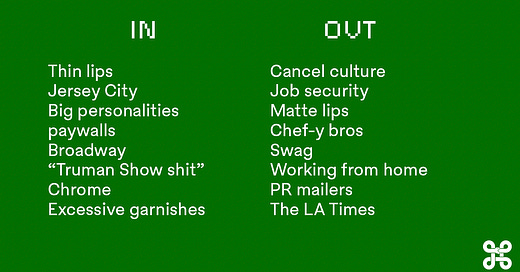Good morning everyone. A few weeks ago I sent out an email asking Feed Me’s readers to tap into their inner-oracles, to predict what they think will change in their industries — for better or for worse — in 2025. Specifically, I asked respondents to avoid what they want to be in or out, and instead predict what they think will actually happen.
Over 500 a…




